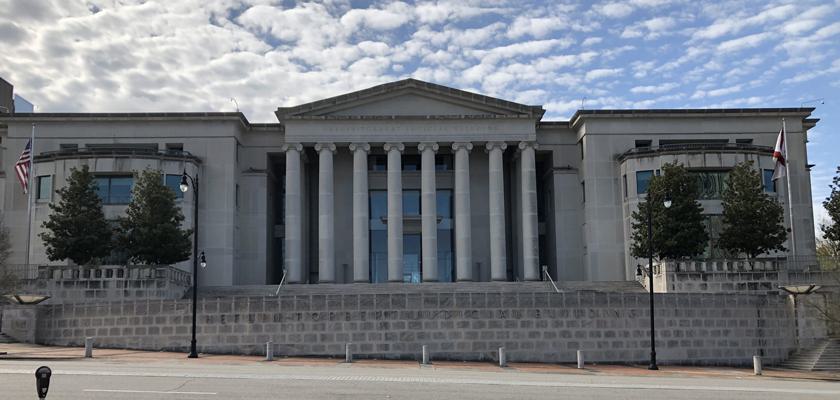Sixteen state legislators filed an amicus brief with the Alabama Supreme Court relating to a case concerning free speech on public college campuses in Alabama.
The case is between Young Americans for Liberty (YAL), a conservative-libertarian student activist organization, and the Board of Trustees of the University of Alabama System. Gov. Kay Ivey is included in the board of trustees.
YAL’s complaint is about the restrictions placed on the use of outdoor campus space at the University of Alabama Huntsville (UAH), which the plaintiffs believe to violate the College Free Speech Act (CFSA).
The amicus brief, which sided with YAL, was filed by 12 state representatives: Mike Ball, Danny Crawford, Bob Fincher, Tommy Hanes, Mike Holmes, Jamie Kiel, Arnold Mooney, Ed Oliver, Ivan Smith, Andrew Sorrell, Tim Wadsworth and Ritchie Whorton.
Four state senators also joined the brief: Arthur Orr, David Sessions, Shay Shellnutt and Lary Stutts.
All of the legislators who filed the brief are members of the Republican Party.
Debate about the language of the CFSA
The CFSA, passed in 2019, was intended to protect the freedom of Alabama college students to “spontaneously and contemporaneously assemble, speak and distribute literature” in outdoor areas of campus.
“It was intended to prevent administrators from enacting any standing restrictions on free speech ex ante while still allowing orderly regulation of conduct if it poses an obstacle to the speech of other groups or the learning environment of the campus,” the brief stated.
The UAH policy requires students to gain approval from the school’s administrators three business days before conducting “expressive activities” on campus. UAH provides an exception for “spontaneous” speech, which the defendants argue is in line with the CFSA.
However, the plaintiffs said that UAH policy defines “spontaneous speech” too narrowly as only speech that is relevant to recent events.
The plaintiffs said that since students must gain permission from the university unless participating in expressive activity directly relevant to recent events, the policy should be overturned.
In February, the Circuit Court of Madison County found the UAH policy compliant with CFSA. “The university’s policy does not prevent plaintiffs’ expression,” said the court. “It merely regulates, in a viewpoint and content-neutral manner, when and where plaintiffs may speak on the university’s property.”
The case will now be brought before the Alabama Supreme Court, following an appeal by the plaintiffs.
Campus wars over free speech
The free speech issue is nothing unfamiliar to college campuses. The issue has received national attention, particularly since protesters at the University of California Berkeley caused $100,000 in damage in response to a planned appearance by former Breitbart News editor Milo Yiannopoulos.
In March of this year, the New York Times Editorial Board published an article titled, “America Has a Free Speech Problem,” highlighting some of the issues surrounding censorship, free speech and cancel culture in the United States, including what takes place on college campuses.
The article received intense backlash. One criticism called for the New York Times Editorial Board to resign for taking its position, essentially insisting they be "canceled," proving the Times' point.
Alabama has not been immune from any controversies of its own. In the last year, there were at least two cases at major public Alabama universities where students were blackballed from positions in student government for a political opinion they expressed online or a political organization they associated with in the past.
SEE ALSO: Conservative students face challenges on Alabama college campuses.
1819 News reached out to Finis St. John IV, chancellor of the University of Alabama System regarding the YAL case. A representative from his office said they do not comment on ongoing litigation but that they are “steadfastly committed to the freedom of speech and expression for all campus community members” and that the policies they have in place “were implemented to preserve this important constitutional right".
To connect with the author of this story, or to comment, email will.blakely@1819News.com.










